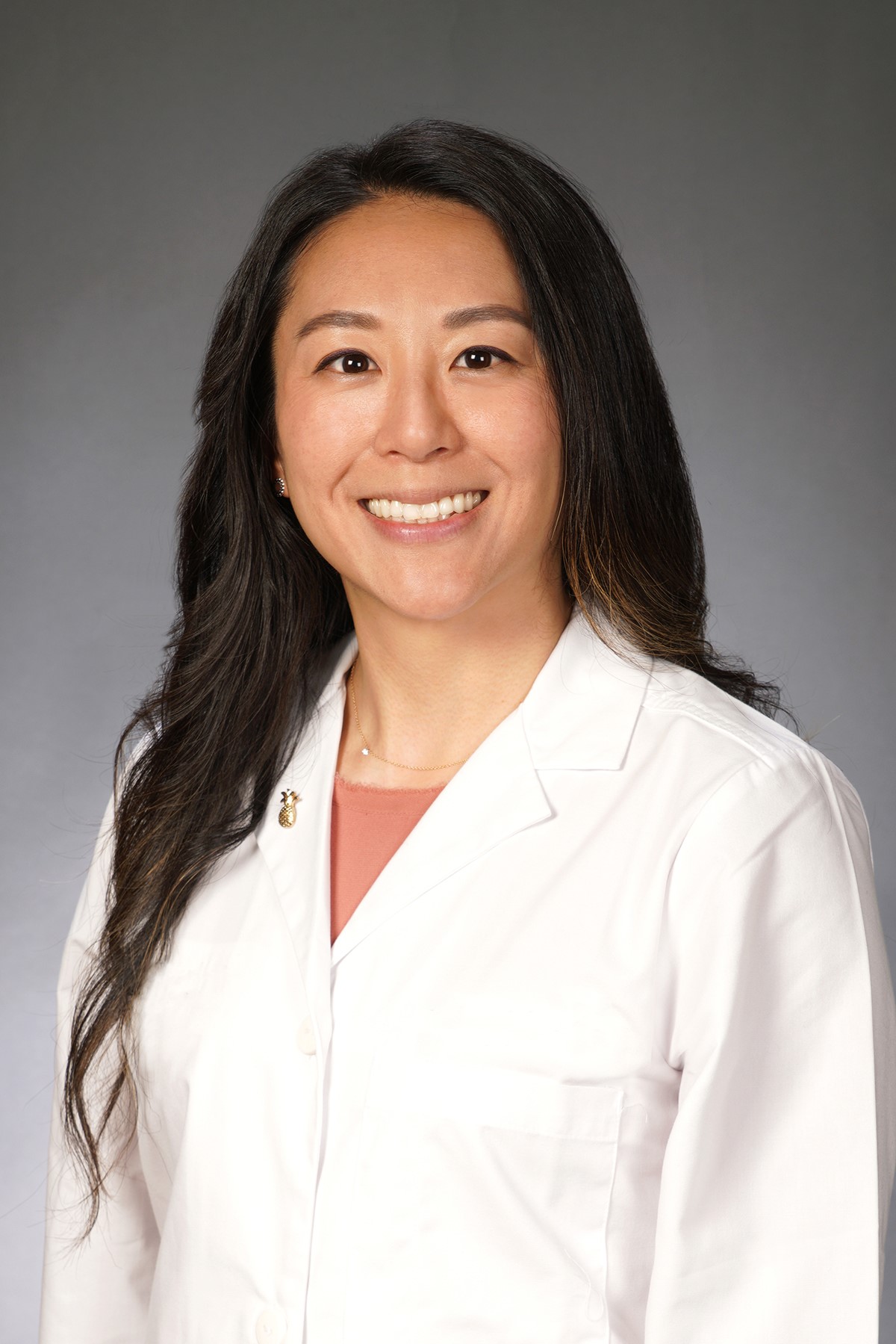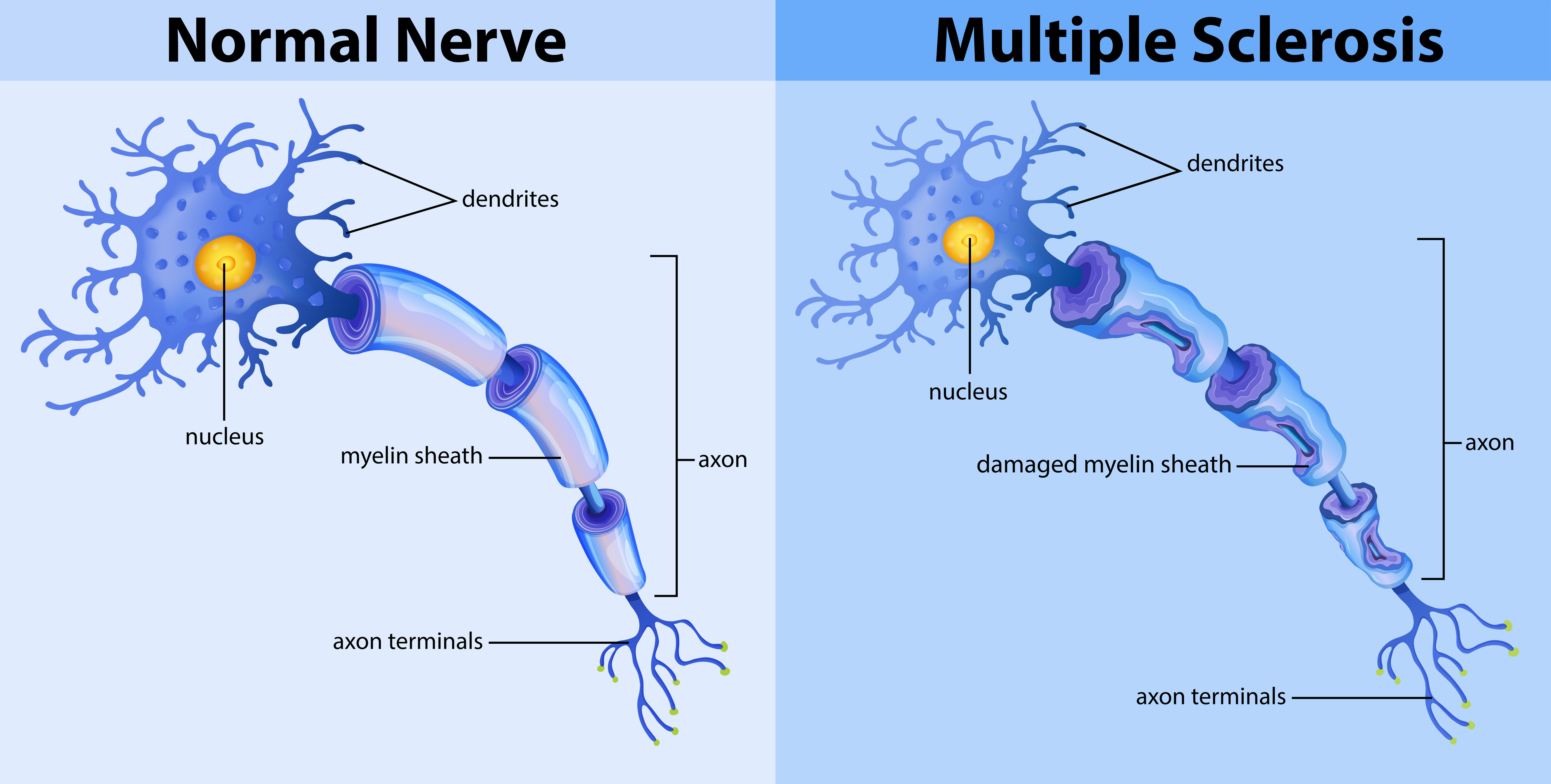
Science
Multiple Sclerosis Treatment Has Come a Long Way, Expert Says
4 min. read
Baptist Health Marcus Neuroscience Institute
Frayed nerves aren’t just that feeling you get when you’re stressed out. For patients diagnosed with multiple sclerosis (MS), it’s essentially what ends up happening to their nerves. Neuroimmunologist Amy Yu, M.D., says MS is a disease that affects the central nervous system (CNS) – specifically, your optic nerves, brain and spinal cord.
The body’s nerve cells are surrounded by a protective covering of myelin, much like the insulating rubber that covers an electric wire, says Dr. Yu, who is medical director of Multiple Sclerosis and Neuroimmunology at Marcus Neuroscience Institute, established at Boca Raton Regional Hospital, a part of Baptist Health.

Neuroimmunologist Amy Yu, M.D., medical director of Multiple Sclerosis and Neuroimmunology at Marcus Neuroscience Institute at Boca Raton Regional Hospital, part of Baptist Health
MS is considered an autoimmune disease, similar to lupus or rheumatoid arthritis (RA). “Due to a cellular malfunction, your body’s immune system sees nerves and the myelin around them as foreign and tries to attack them with disease-fighting cells, which causes nerve injury and inflammation,” explains Dr. Yu.
That impaired immune response can damage myelin, disrupting the smooth flow of nerve impulses. When this occurs, messages being sent from the brain and spinal cord to other parts of the body may be delayed or have difficulty reaching their destination, triggering the symptoms of MS.

More about multiple sclerosis (MS)
Multiple sclerosis – “multiple scars” – gets its name from the areas of scar tissue, known as plaques (or MS lesions), that can eventually form and harden along areas of permanently damaged myelin, according to the Multiple Sclerosis Association of America (MSAA). These plaques can be viewed on an MRI, which is used to help diagnose MS and evaluate a patient’s progress at various intervals.
There are different types of MS, says Dr. Yu, the three most common being:
• Relapsing-Remitting MS (RRMS)
• Secondary-Progressive MS (SPMS)
• Primary-Progressive MS (PPMS)
Actors Christina Applegate (Married…with Children and Dead to Me) and Jamie-Lynn Sigler (The Sopranos and Entourage) both were diagnosed with MS in recent years. They have been very open with their struggles with the disease, even hosting a popular podcast about living with MS, MeSsy with Christina Applegate and Jamie-Lynn Sigler.
MS is the most common of the neuroinflammatory diseases, which Dr. Yu says also include autoimmune encephalitis, neuromyelitis optica, transverse myelitis, and stiff-person syndrome, the illness that forced Celine Dion to cancel her tour dates through 2024.
The field of neuroimmunology does not know exactly what causes MS, according to Dr. Yu, who says there is no one particular reason but it’s more “a combination of genetic predisposition as well as environmental triggers and risk factors.”
Who is at risk for MS?
The MSAA says nearly one million individuals are living with MS in the United States. While MS is not contagious or hereditary, MS susceptibility is increased if a family member also has the disease.
“Most people experience their first symptoms and are diagnosed between the ages of 15 and 50, although individuals of any age may be diagnosed with MS,” the MSAA states, “and more women are diagnosed with MS than men.”
Also, the MSAA continues, “individuals living beyond the 40-degree mark north or south of the equator are far more likely to develop MS, and this is especially true for people in North America, Europe, and southern Australia.”
Dr. Yu says MS is the number one cause of neurologic disability in young adults but the disease can afflict anyone – even young children, although she says that is rare. Once someone is diagnosed with MS, it becomes “a lifelong disease,” she says. “However, it is one that can be managed with a combination of medications as well as physical, occupational, vocational, speech-language and cognitive therapies, as needed.”
MS symptoms can vary greatly
Dr. Yu says that the symptoms and severity of MS can vary greatly from one person to another depending on exactly what part of the central nervous system is affected. “Symptoms can range from physical to emotional and even cognitive,” she says.
Common symptoms of MS include:
· Anxiety
· Balance difficulties
· Bladder dysfunction
· Bowel habit changes
· Cognitive changes
· Depression
· Dizziness/vertigo
· Fatigue
· Mobility and walking issues
· Numbness
· Pain
· Pseudobulbar Affect (PBA)
· Sexual dysfunction
· Sleep issues
· Speech difficulties
· Spasticity (stiffness)
· Swallowing disorders
· Tremor
· Visual disorders
· Weakness
MS treatment continues to advance
“No one ever wants to be diagnosed with MS but we now have a lot of very good treatment options that didn’t exist just a few years ago,” Dr. Yu notes. These new treatments are capable of modifying the course of the patient’s disease, preventing further relapses (also known as attacks or exacerbations) and managing their symptoms, she says.
As a result, patients diagnosed with MS today have a “very different disease trajectory than those diagnosed in the pre-DMT era,” Dr. Yu says. “Patients diagnosed more recently are on treatment to prevent new disease and they’re living their lives and can expect to have the same life expectancy as the general population.”
Much of the evidence today suggests that for most MS patients, disease progression is slow, and most patients don’t become severely disabled, the MSAA says. “Twenty years after diagnosis, about two-thirds of people with MS are likely to still be walking, although some individuals may need assistance with walking. This includes assistive devices to help with mobility, as well as items such as scooters to help conserve energy.”
An exciting time for MS research
Dr. Yu says it’s an exciting time to be working in the field of neuroinflammatory diseases such as MS. “MS is a relatively rare condition and the science and the treatments are moving at such a rapid pace,” she says, noting that the Multiple Sclerosis and Neuroimmunology program at Marcus Neuroscience Institute is one small step away from national certification.
“We expect to be certified very soon as a Center for Comprehensive Care by the National Multiple Sclerosis Society,” says Dr. Yu, who has been tasked with building a world-class MS program at Marcus Neuroscience Institute. “We’ve already met all the other criteria. The last piece for us is to hire a dedicated MS nurse, which is already in the works.”
Healthcare that Cares
Related Stories
View All Articles
Baptist Health, FIU’s Herbert Wertheim College of Medicine Partner in New Clinical Trial That Could Revolutionize Care for Alzheimer’s Patients
March 28, 2024
2 min. read

Brain Injury Awareness: Understanding Immediate and Long-Term Neurological Effects
March 27, 2024
3 min. read
